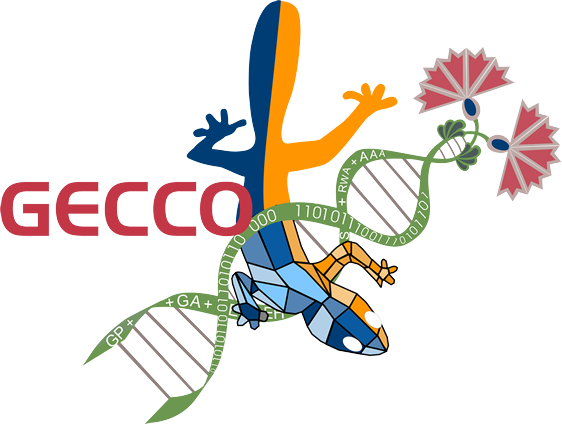- Written by: Thomas Weise
Our team warmly welcomes Mr. Lalin Heng, lecturer at the Department of Information Technology and Communication of the Institute of Technology of Cambodia (ITC) [វិទ្យាស្ថានបច្ចេកវិទ្យាកម្ពុជា] in Phnom Penh [ភ្នំពេញ], Cambodia [កម្ពុជា] for a research stay from February to March 2019. Mr. Heng has received his Master of Electrical Engineering with specialization in Information Technology in 2017 from the Gadjah Mada University, Yokyakarta, Indonesia and holds two Bachelor degrees, a Bachelor of Engineering in Computer Science also from ITC (2015) and a Bachelor of Education in TEFL from the Institute of Foreign Languages (IFL) of the Royal University of Phnom Penh (RUPP) [សាកលវិទ្យាល័យភូមិន្ទភ្នំពេញ], Phnom Penh, Cambodia (2018). He holds several professional certificates in computer networking both from Cisco and Huawei and has gathered work experience in several internships in this field, too. He has published four academic papers on routing and cell selection. The research interests of Mr. Heng include computer networks and security, which are important areas of application of optimization and computational intelligence. His work and interests are therefore closely related to the Distributed Computing research field of our institute. We are looking forward to working with Mr. Heng. Welcome to Hefei University!
Addendum: Mr. Heng has now successfully completed his stay in our team. It was a very nice and inspiring time for all of us. We enjoyed working together and exchanging ideas. We were particularly happy that we could find an intersection of Mr. Heng's interest in network security and our computational intelligence theme. As a result, we conducted a joint research project and could even publish our results at an international scientific conference
We wish Mr. Heng all the best for his future. Let's keep in touch.
- Written by: Thomas Weise
Our team congratulates Xinlu Li [李新路], who, from today (2019-02-13) on, is Dr. Xinlu Li [李新路博士]! Earlier this year, Xinlu successfully defended his PhD thesis "Energy-Efficient Swarm Intelligence based Routing Protocol for Wireless Sensor Networks" at the Technological University Dublin (TU Dublin) in Dublin, Ireland in front of Professor Liam Murphy from the University College Dublin (UCD) and Dr. Paul Doyle (TU Dublin). His work was co-supervised by Dr. Fred Mtenzi and Dr. Brian Keegan. Today his academic award has been approved by the Academic Council of TU Dublin. Congratulations, Dr. Li!
In the framework of his thesis, Dr. Li conducted research on Swarm Intelligence (SI) based routing for Wireless Sensor Networks (WSNs). SI is a meta-heuristic methodology used to solve numerical optimization problems by simulating swarm behaviors found in nature. These techniques demonstrate the desirable properties of interpretability, scalability, effectiveness, and robustness. There is a similarity between bio-inspired systems and routing in networks, especially in WSNs. Dr. Li designed a SI-based routing protocol capable of being deployed on large-scale WSNs to ensure efficient energy usage and prolonging the network lifetime.

Dr. Xinlu Li after his PhD defense. Left to right: Dr. Brian Keegan (supervisor), Dr. Xinlu Li, and the external examiners Prof. Liam Murphy (UDC) and Dr. Paul Doyle (TU Dublin).
Read more: Congratulations to Senior Lecturer Xinlu Li for Receiving his PhD Degree

- Written by: Thomas Weise
On Wednesday, 2019-01-30, we presented our paper "An Improved Generic Bet-and-Run Strategy with Performance Prediction for Stochastic Local Search," co-authored by Thomas Weise, Zijun Wu, and Markus Wagner at the Thirty-Third AAAI Conference on Artificial Intelligence (AAAI-19).
Thomas Weise, Zijun Wu, and Markus Wagner. An Improved Generic Bet-and-Run Strategy with Performance Prediction for Stochastic Local Search. Proceedings of the Thirty-Third AAAI Conference on Artificial Intelligence (AAAI 2019), January 27 – February 1, 2019, Honolulu, Hawaii, USA, pages 2395–2402. Palo Alto, CA, USA: AAAI Press. ISBN: 978-1-57735-809-1
doi:10.1609/aaai.v33i01.33012395 / pdf@IAO / pdf@AAAI / slides / poster
The conference was very nice and interesting. The seven sessions on "Search, Constraint Satisfaction and Optimization" as well as the ten sessions on "Game Theory and Economic Paradigms" showed that our research fields are core topics at one of the most important venues on soft computing. It was very nice presenting our work in such a context and we had several interesting discussions with interested researchers.
- Written by: Thomas Weise
The paper submission deadline of the 2019 IEEE Congress on Evolutionary Computation has been extended until January 31, 2019. As a result, we are happy to announce that there are also two more weeks for authors to submit their papers to our Special Session on Benchmarking of Evolutionary Algorithms for Discrete Optimization (BEADO).
Evolutionary Computation (EC) is a huge and expanding field, attracting more and more interests from both academia and industry. It includes a wide and ever-growing variety of optimization algorithms, which, in turn, are applied to an even wider and faster growing range of different problem domains, including discrete optimization. Benchmarking is the engine driving research in the fields of Evolutionary Algorithms (EAs) for decades, while its potential has not been fully explored. With our special session, we want to bring together experts on benchmarking, evolutionary computation algorithms, and discrete optimization and provide a platform for them to exchange findings, to explore new paradigms for performance comparison, and to discuss issues such as
- modelling of algorithm behaviors and performance
- visualizations of algorithm behaviors and performance
- statistics for performance comparison (robust statistics, PCA, ANOVA, statistical tests, ROC, …)
- evaluation of real-world goals such as algorithm robustness, and reliability
- theoretical results for algorithm performance comparison
- comparison of theoretical and empirical results
- new benchmark problems
- the comparison of algorithms in “non-traditional” scenarios such as
- multi- or many-objective domains
- parallel implementations, e.g., using GGPUs, MPI, CUDA, clusters, or running in clouds
- large-scale problems or problems where objective function evaluations are costly
- dynamic problems or where the objective functions involve randomized simulations or noise
- comparative surveys with new ideas on
- dos and don'ts, i.e., best and worst practices, for algorithm performance comparison
- tools for experiment execution, result collection, and algorithm comparison
- benchmark sets for certain problem domains and their mutual advantages and weaknesses
Please visit the special session website for more information. Here you can download the BEADO Special Session Call for Papers (CfP) in PDF format and here as plain text file.
- Written by: Thomas Weise
at the Genetic and Evolutionary Computation Conference (GECCO 2019)
July 13-17, 2019, Prague, Czech Republic
http://iao.hfuu.edu.cn/bbdob-gecco19
The Black-Box Discrete Optimization Benchmarking (BB-DOB) Workshop, a part of the Genetic and Evolutionary Computation Conference (GECCO) 2019, is cordially inviting the submission of original and unpublished research papers.

The Black-Box-Optimization Benchmarking (BBOB) methodology associated to the BBOB-GECCO workshops has become a well-established standard for benchmarking stochastic and deterministic continuous optimization algorithms. The aim of the BB-DOB workshop series is to set up a process that will allow to achieve a similar standard methodology for the benchmarking of black box optimization algorithms in discrete and combinatorial search spaces.
Here you can download the BBDOB Workshop Call for Papers (CfP) in PDF format and here as plain text file.
The long term aim of our workshop series is to produce, for the domain of discrete optimization:
- a well-motivated benchmark function testbed,
- an experimental set-up,
- methods for the generation of data output for post-processing and
- proper presentations of the results in graphs and tables.
The aims of this GECCO 2019 BB-DOB workshop are to finalize the benchmarking testbed for discrete optimization and to promote a discussion of which performance measures should be used.
The benchmark functions should capture the difficulties of combinatorial optimization problems in practice. They also should be comprehensible so that algorithm behaviors can be understood or interpreted according to the performance on a given benchmark problem. The goal is that a desired search behavior can be pictured and algorithm deficiencies can be understood in depth. This understanding will lead to the design of improved algorithms. Ideally, we would like the benchmark functions to be scalable with the problem size and non-trivial in the black box optimization sense (the function may be shifted such that the global optimum may be any point). Achieving this goal would help greatly in bridging the gap between theoreticians and experimentalists.
We also wish to investigate which measures should be used to compare algorithm performance, which statistical tests should be run to compare algorithms, and how to deal with unsuccessful runs.
This workshop wants to bring together experts on benchmarking of optimization algorithms. It will provide a common forum for discussions and exchange of opinions. Interested participants are encouraged to submit a paper related to black-box optimization benchmarking of discrete optimizers. The topics of interesting especially include papers that
- suggest functions to be included in the benchmark and motivate the reasons for inclusion,
- suggest benchmark function properties that allow to capture difficulties which occur in real-world applications (e.g., deception, separability, etc.),
- suggest which classes of standard combinatorial optimization problems should be included and how to select significant instances,
- suggest which classes of toy problems should be included and motivate why,
- suggest which performance measures should be used to analyze and compare algorithms and comment/suggestions on related issues, and/or
- tackle any other aspect of benchmarking methodology for discrete optimizers such as design of experiments, presentation methods, benchmarking frameworks, etc.
- conduct performance comparisons, landscape analysis, discussion of selected benchmark problems and/or provided statistics of IOHprofiler, a ready-to-use software for the empirical analysis of iterative optimization heuristics
For more information please contact Pietro S. Oliveto at
This workshop is organized as part of ImAppNIO (Cost Action 15140).
Read more: Black Box Discrete Optimization Benchmarking (BB-DOB) Workshop
- Prof. Weise Receives the Second Hefei Economic and Technological Development Area Friendship Award
- Special Session on Benchmarking of Evolutionary Algorithms for Discrete Optimization (BEADO)
- Delegation from the German Province Saxony and the Chemnitz University of Technology visits Hefei University
- First DAAD Meeting "Research and Teaching in China" in Beijing
